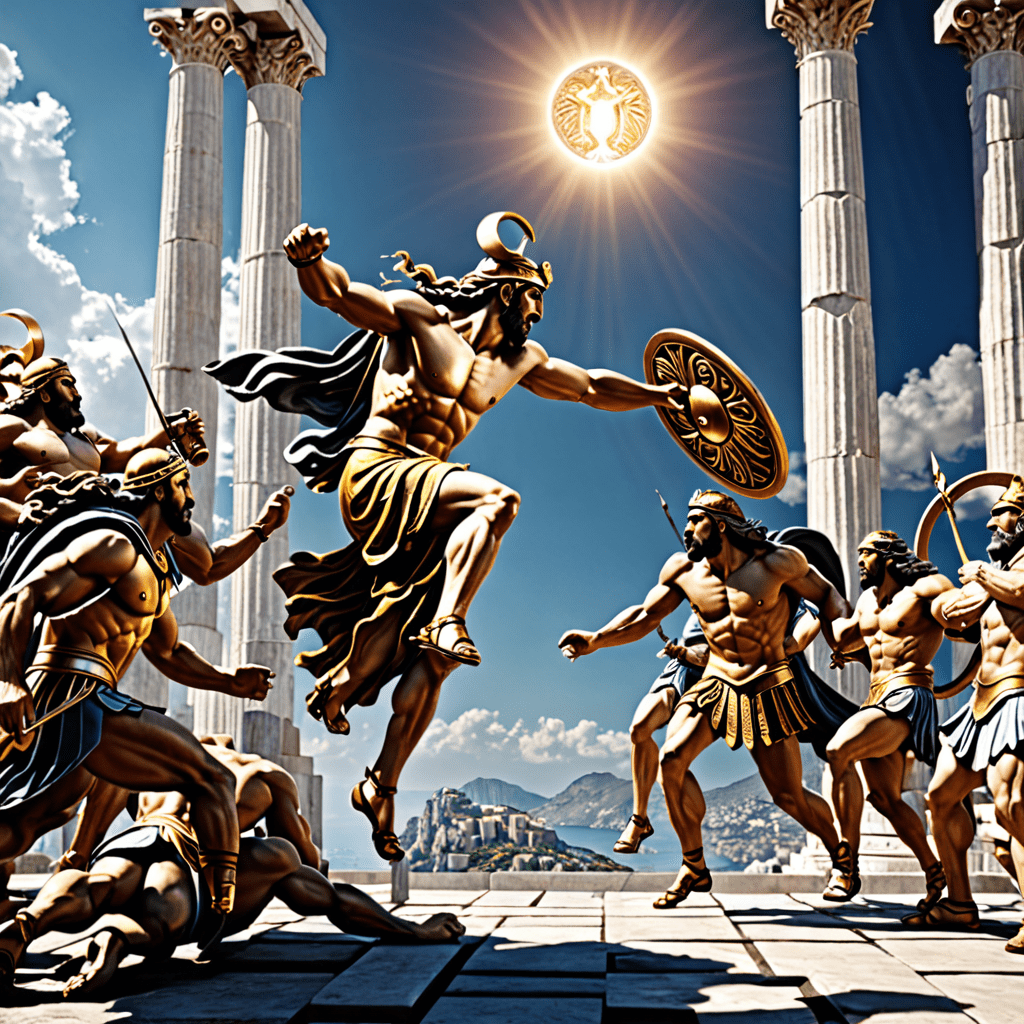End of the World Myths: Are They Just Folklore?
Introduction to End of the World Myths
Throughout human history, apocalyptic narratives have woven themselves into the fabric of cultures around the globe. From the flood myths of ancient Mesopotamia to the prophecies of modern-day seers, these stories capture the imagination and reflect deep-seated fears about our existence and the fate of the world.
The significance of these myths extends beyond mere storytelling; they serve as a lens through which we explore themes of mortality, morality, and the unknown. In times of uncertainty, they provide explanations and justifications for the chaos that surrounds us, offering comfort in the face of existential dread.
Historical Context of Apocalyptic Beliefs
Apocalyptic beliefs have been prevalent in many ancient civilizations, often arising during periods of turmoil or transition. For example:
- The ancient Egyptians believed in cycles of destruction and rebirth, as reflected in their mythology surrounding the sun god Ra.
- The Mayans had a complex calendar system that included predictions of cataclysmic events, which led to widespread speculation about the end of the world.
- The Roman Empire faced numerous crises, leading to apocalyptic writings such as those of the early Christians who anticipated the Second Coming of Christ.
Key historical events, such as pandemics, wars, and natural disasters, have influenced apocalyptic thinking. The Black Death of the 14th century, for instance, led many to believe they were living in the end times, shaping religious and cultural responses to suffering and mortality.
Cultural Variations in End of the World Myths
Across cultures, end-of-the-world myths vary significantly, reflecting diverse worldviews and values. In Western traditions, narratives often center around divine judgment, while Eastern narratives may emphasize cyclical destruction and renewal.
Western vs. Eastern Apocalyptic Narratives
Western traditions, particularly within Christianity, often depict a linear progression toward an ultimate judgment day. In contrast, Eastern philosophies, such as Hinduism and Buddhism, embrace the idea of cyclical time, where destruction leads to rebirth.
Indigenous Perspectives
Many Indigenous cultures have their own unique apocalyptic myths, often linked to ecological balance and the relationship between humanity and the earth. For example, some Native American tribes envision a great purification that will restore harmony with nature.
Religious Interpretations of Apocalypse
Major world religions have their own interpretations of apocalyptic events:
- Christianity: The Book of Revelation describes the end times with vivid imagery of judgment and salvation.
- Islam: The Day of Judgment is a central belief, with signs preceding the end, as outlined in the Quran.
- Hinduism: The concept of Kali Yuga, the current age, is characterized by moral decay leading to renewal.
- Buddhism: While not focused on an apocalypse, the belief in cycles of existence suggests endings and new beginnings.
These sacred texts and prophecies have shaped the beliefs and behaviors of millions, serving as both warnings and guides for living a righteous life in anticipation of possible end times.
Modern Manifestations of Apocalyptic Thought
In contemporary society, the influence of science and technology has given rise to new forms of apocalyptic thought. Concerns about nuclear war, pandemics, and artificial intelligence are prevalent.
Additionally, climate change has become a significant factor in modern apocalyptic narratives, as the threat of environmental collapse looms large. Global crises, such as economic instability and political unrest, further fuel fears of an impending apocalypse.
Psychological Underpinnings of Apocalypse Beliefs
Understanding why people believe in end-of-the-world scenarios involves delving into psychology. Key factors include:
- Fear and Uncertainty: In times of crisis, the human mind seeks explanations for chaos, leading to apocalyptic beliefs.
- Myth-Making: Myths provide frameworks for understanding complex realities and offer a sense of control.
- Community and Identity: Shared beliefs in apocalyptic scenarios can strengthen community bonds and provide a collective narrative.
Apocalyptic Myths in Popular Culture
Modern media has played a crucial role in shaping public perception of apocalyptic scenarios. Films, literature, and television often explore themes of dystopia and survival:
- Films: Movies like “Mad Max” and “The Road” depict post-apocalyptic worlds, exploring human resilience and moral dilemmas.
- Literature: Novels such as “The Road” by Cormac McCarthy illustrate the psychological impact of apocalypse on humanity.
- Television: Series like “The Walking Dead” reflect societal fears of collapse and the struggle for survival.
These portrayals not only entertain but also influence how society perceives potential realities of the apocalypse.
Debunking Myths: Scientific Perspectives on Apocalypse Predictions
While apocalyptic myths are prevalent, scientific inquiry offers a rational perspective on potential global catastrophes. Key scientific theories include:
- Asteroid Impact: The possibility of a catastrophic asteroid impact has been studied, but the likelihood of such events is low.
- Climate Change: While climate change poses serious risks, it is a gradual process rather than an immediate apocalypse.
- Global Pandemics: Scientific advancements in medicine and public health aim to mitigate the impact of diseases.
Promoting rational thought and skepticism is essential in addressing apocalyptic myths, encouraging a focus on solutions rather than fear.
The Role of Folklore in Shaping Societal Values
End-of-the-world myths often reflect societal fears and moral lessons. They serve several functions:
- Reflection of Values: Myths can reveal what societies deem important, such as environmental stewardship or moral integrity.
- Community Bonding: Shared beliefs can strengthen community identity and provide a sense of belonging.
- Guidance and Morality: Folklore often imparts lessons about human behavior and consequences.
Conclusion: The Future of End of the World Myths
As we navigate an increasingly complex world, the relevance of apocalyptic narratives remains strong. They provide a framework for understanding our fears and hopes, acting as mirrors reflecting our collective psyche.
Ultimately, whether these myths are merely folklore or hold deeper truths about human existence is a question that each generation must grapple with. They remind us of our vulnerabilities, our values, and perhaps most importantly, our shared humanity in the face of uncertainty.



